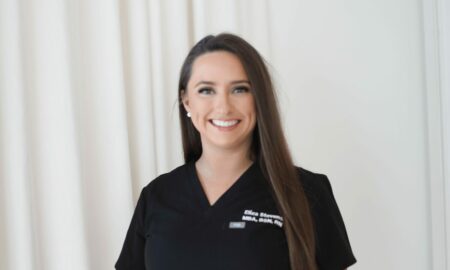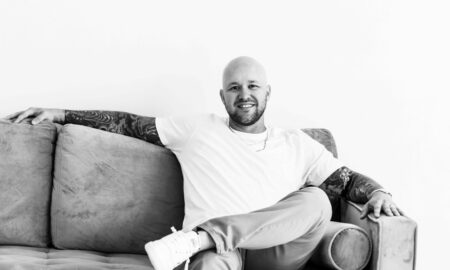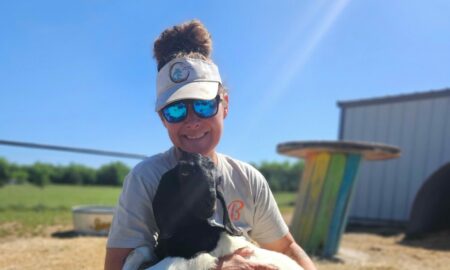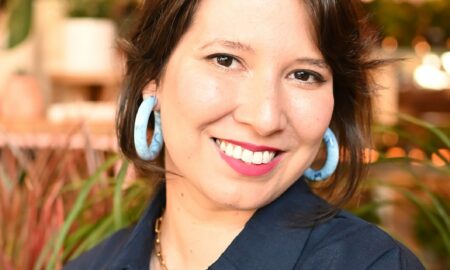

Today we’d like to introduce you to Robert M. Brown.
Robert, can you briefly walk us through your story – how you started and how you got to where you are today?
It was never my intent as a young man to get into the line of work I am in now. In high school I more aspired towards the performing arts, serving for a short while after high-school as a studio musician and vocal coach for a small recording studio in Austin called Music Lane, which was in the basement of what at the time was called the Austin Opry House. I also worked for a short while thereafter as a disc jockey for two local radio stations in Austin and was even in a couple of bands which performed at places on 6th street and South Congress.
In the early 90s, South by Southwest (SxSW) was just beginning to take root and I pitched a couple of songs to some representatives at the event. A couple of my tunes were picked up and shopped around, but I did not hear from anyone after that. Mind you, this was when SxSW was a much smaller event, more focused on local musicians getting exposure to big labels and more. As I finished my undergrad at the University of Texas, it became evident that I was not on the path to be the next Howard Stern or Nirvana. So I grew up and found a real job so to speak. I began my career a Dell Computer, which at the time was a much smaller company than it is today ($500+M), and soon thereafter landed in a telecom position, and have kept in that space at various companies ever since.
So, going backward starting with where I am today…
In my current role as Vice President of Strategic Business Development, I help define the strategy and direction for one of the divisions of Viasat, Inc.– a global satellite and communications conglomerate. In addition, I provide support to my peers in commercial revenue development, sales pipeline, product management and marketing activities, as well as manage our larger strategic accounts such as the U.S. Navy, U.S. Marine Corp, Comcast, Charter, Sprint, and others. In addition, I am responsible for exploring roaming relationships worldwide. I also serve as Viasat ‘s main executive representative to the Wireless Broadband Alliance (WBA) and am the Founder the Wireless Internet Industry Executives (WIIE) group, a group on LinkedIn which is currently 13,000 members strong.
Prior to Viasat, I was responsible for business development at Google Fiber where I led efforts for wireless strategies and partner development, including negotiating the deal with Starbucks for Google WiFi in their stores nationwide.
Prior to Google, I served as a management consultant assisting major carriers and service providers including Google Fiber, Time Warner Cable, Cox Communications, and several other service providers with their micro-network product strategies, product development, market sizing, and business development.
Prior to that, I was Director of Strategic Business Development for AT&T Wi-Fi Services and Wayport Inc. which was acquired by AT&T. At Wayport, I executed strategic planning, managed roaming relationships and supported cross-functional teams in charge of new, large-scale managed services deployments for public/private Wi-Fi networks, transport and data applications at major hotels, airports, hospitals, restaurants and retail venues, including McDonald’s and Starbucks.
I have a Master’s degree in International Business Law from Boston University, an MBA from Colorado Tech and a Bachelor of Science degree in Mass Communications from the University of Texas at Austin.
Has it been a smooth road?
Like with many in my space, I’ve seen my net worth jump to ridiculous amounts [on paper] during the tech boom only to see it dwindle away quickly to nothing multiple times due to volatile market conditions. This was before Sarbanes Oxley when employees were encouraged to throw all their investment into the company’s stock. And yes, I’ve been through my share of disappointments in the company stock when that company goes south. Furthermore, when I was much younger, single and with lots of disposable income, I acted like a complete irresponsible rock star, throwing away money on stupid toys, trips and going out. But to put it in perspective of my career, I was not as focused in my 20s on upward mobility as I became in 30s and 40s.
I’ve learned over the years that companies often are only as loyal to their employees as the markets are to them, no matter how well you perform… yet top performers are usually the last to consider for a rif when companies must resort to that in times of a market downturn. Thus, I’ve become wise to appreciate no one is without risk of losing a job, at any time, no matter how important you perceive you are to that company, no matter how high up you are in the company, and certainly with no regard to your tenure. So keeping that in mind, I go to great lengths to ensure I am providing indisputable value to the company, to my team and to my customers each and every day… and try to instill that work ethic with others.
So let’s switch gears a bit and go into the Viasat, inc. story. Tell us more about the business.
Viasat is a global communications company with more than 4,500 strong across 26 offices around the world. We believe everyone and everything in the world can be connected, and for more than 30 years, Viasat has helped shape how consumers, businesses, governments, and militaries around the world communicate.
Today, we’re a global team of fearless innovators finding better ways to deliver connections with the capacity to change the world. We’re developing the ultimate global communications network to power high-quality, secure, affordable, fast connections to impact people’s lives anywhere they are—on the ground, in the air or at sea.We think big, we act intelligently, and we’re not done… we’re just beginning.
What I am most proud of is the fact that I am with a company that is truly making a difference for those in unserved/underserved parts of the world (areas with little to no internet). Viasat’s will be launching over the next few years several next-generation broadband satellites each covering nearly a third of the globe and each with a terabit of capacity.
How do you think the industry will change over the next decade?
I think we’re on the verge of some sweeping changes in technology with AI. Think about it — would you have believed just 6 years ago that we would see autonomous vehicles on the road today, or that you’d be able to get online while 30,000 feet in the air?
There is an article written recently about the type of data Google captures throughout your day and how that informs their platform for personalizing your daily experience. I think we’re just beginning to see how data affects our lives, not by the data we’re consuming, but by WHAT we’re doing and how that affects the environments around us to be more accommodating to our wants and needs.
Try this the next time you’re in Las Vegas. If you’re affiliated with a loyalty program, book your reservation through that hotel site. Notice before, during and after your trip that you get personalized ads regarding places to go in Vegas in your Gmail. Also notice if you are near certain digital signage say within the mall at Caesars or inside the casino that the ads displayed on those signs seem more relevant to your tastes, or of those with whom you’re with. That’s because the data is being fed at every junction — when you booked your hotel, the hotelier understands your preferences, your history at their hotel or at others within their brand. They understand where you’ve been when at their hotels because of sensors and Wi-Fi MAC address tracking. They understand what purchases you’ve made at that hotel from your folio. Sites like Google know you booked the trip and also follows your device around. The WiFi APs in each of the restaurants of the hotels can determine whether you are a passerby or a patron, based on your vicinity to those APs, your dwell time, the cadence of your visits and they can even triangulate where you sat in the restaurant by determining the signal to noise ratio between your device and multiple APs in that restaurant… and that’s just the first wave of ‘big data’ as they say.
Interesting times are ahead, to say the least. Thank you for this opportunity to provide my story to VoyageDallas, and special thanks to my good friend David Novak for recommending me for this interview.
Contact Info:
- Website: viasat.com
- Email: robert.brown@viasat.com
Getting in touch: VoyageDallas is built on recommendations from the community; it’s how we uncover hidden gems, so if you know someone who deserves recognition please let us know here.

















